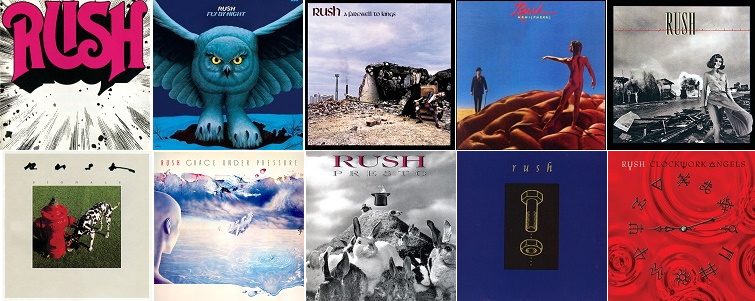
Tears is another song that divides people. Maybe if I weren’t used to Geddy Lee’s screeching high voice it would bother me, but I am used to it so such is not the case. The guitar textures are nice and it functions as nice hard rock number. It’s an odd track in that Alex Lifeson wrote the lyrics, and you can feel his presence in the music writing more than the other songs. Track four, Lessons, might be the weakest track on the album, but that’s not to say it isn’t good. I’m a big fan of track three, the Twilight Zone the song structure is abnormal and dynamics are profound (occasionally Rush, as with many other rock bands, just cranks to 11 and forgets about dynamics) and their are subtleties that really add to the atmosphere, like Geddy’s whisper vocal track and Alex’s high pinch-harmonic entrance to his guitar solo.

A Passage to Bangkok is pretty universally loved with its silly oriental cowbells and odd time signature guitar solo, but the other songs usually get more of a mixed review. Some find the other five tracks simple and boring, while other, like myself, enjoy hearing Rush condense their writing into short, catchy singles.

Side two of the record divides fans as well. This is easily the best track on the album and possibly the best track in Rush’s catalog. The story is simple enough to figure out just by listening, which is important for long story based suites and something that even some of the best prog suites (i.e. All three musicians are playing at the top of their game, and the melodic hooks are quite catchy. There is enough complexity to keep things interesting, but not so much that it’s a fatiguing listen. The story is loosely based on Ayn Rand’s Anthem. Some prog fans criticize this piece for its lack of musical complexity, but I personally praise it for just that: not being too over-the-top. The album opens with its most well-known track: the 20 minute 2112, a suite divided into seven sections depicting the story of a man in a dystopian future who discovers a guitar and with it the lost art of the world that came before him. despite the length of its title track, it’s an accessible record with enough edge and anti-authoritarianism for angsty teenagers to get behind, yet enough complexity and creativity for the appropriately snobby progger to enjoy. There are so many varieties of progressive rock and so many truly brilliant groups and albums, but I ultimately decided to go with the album that really got me into progressive rock: Rush’s 2112.Ģ112 is often used as a gateway record to get bands into prog due to its balance of both prog and classic rock qualities.

It took me a little while to decide what album to review first.


 0 kommentar(er)
0 kommentar(er)
